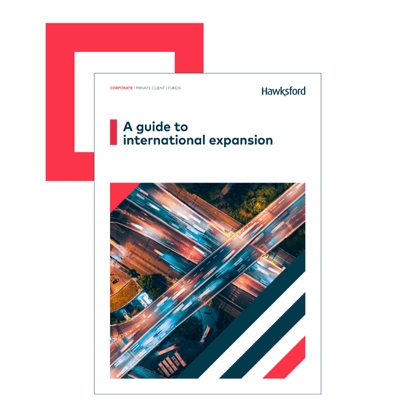The United Kingdom (UK) is proactively expanding its trade relationships, building on long-standing ties and pursuing new opportunities for British businesses. Recent trade agreements with India, the United States (US) and the European Union (EU) reflect this ambition, offering both relief and opportunity amid geopolitical volatility and shifting global dynamics.
In this article, we take a closer look at these agreements, and explore how they benefit British businesses, particularly in terms of market access, regulatory alignment and sector-specific opportunities.
The India opportunity
After three years of negotiations, the UK trade deal with India was signed on 6 May 2025. Set to reduce trade barriers, open new markets and foster deeper ties, the agreement will cut levies on 90% of British products sold in India. It is predicted to generate an additional £4.8 billion annually to the UK economy.
A further £2.2 billion annually is expected be added to UK wages while UK exporters are estimated to save up to £400 million a year from India’s reduced levies on UK goods.
Some sectors in the UK stand to benefit from the agreement more than others, with certain products seeing dramatic reduction in tariffs. For example, tariffs on whisky and gin exported to India from the UK will be halved from 150% to 75% before being further reduced to 40% by the tenth year of the deal. Car tariffs will fall from more than 100% to 10%.
Agricultural products such as dairy and meat, along with cosmetics, electrical machinery, aerospace and medical devices, will also see tariff reductions, although these cuts will be less substantial than those for liquor and cars.
With India set to become the world’s fourth largest economy in 2025 and projected to overtake Germany as the third largest by 2028, UK exporters are gaining access to a market with extraordinary growth potential.
Overall, the deal is expected to make it easier for UK businesses to trade with the Indian market by introducing a range of measures including reductions in technical barriers, faster customs processing and the facilitation of sophisticated digital systems.
These changes should particularly benefit small and medium-sized enterprises (SMEs), enabling them to expand into India and access new markets that were previously prohibitively expensive to enter without the new agreement.
A notable US agreement
Similarly, on 8 May, the UK reached a trade agreement with the US. While narrower in scope compared to the trade deal with India, it is particularly notable as it is the first trade agreement concluded by the new US administration. The UK is also the first country to secure such a deal with the US since President Donald Trump announced sweeping tariffs on 2 April.
The trade agreement reduces existing tariffs on UK cars with immediate effect. Car exports to the US will now be subject to a 10% tariff in the US, down from 27.5%, on a quota of 100,000 UK cars – close to the total amount exported last year.
Another key outcome is the US’s agreement to eliminate its recently imposed levies of 25% on UK-made steel and aluminium, providing much-needed support for these sectors at a time when the UK steel industry, exemplified by the crisis at British Steel’s Scunthorpe plant, faces significant domestic challenges.
Similarly, a new reciprocal agreement regarding market access on beef – with UK farmers given a quota for 13,000 metric tonnes – has provided an unprecedented opportunity with protections on food standards still in place.
While the general 10% tariff remains for most goods, the removal of punitive duties on key exports offers immediate benefits to British businesses trading these goods with the US and preserves thousands of jobs in the UK.
The two nations have also agreed to work on a digital trade deal that will reduce paperwork for British firms trying to export to the US. This is also expected to simplify regulatory processes and enhance digital trade flows.
A pragmatic “reset” with the EU
Nearly nine years after it voted to leave the bloc, Britain reached a wide-ranging deal with the EU on 19 May. The agreement is widely regarded as the most significant reset of trade ties with the EU since Brexit.
At the heart of the deal is a defence and security pact that will allow the UK to be part of the EU’s joint procurement projects and paves the way for British companies including BAE Systems, Rolls-Royce, and Babcock to take part in a £150 billion programme to rearm Europe.
The agreement also includes the elimination of routine border checks on animal and plant products, facilitating smoother trade for British agrifood businesses. This change is expected to lower costs and reduce delays for exporters. The UK will also be able to sell various products, such as burgers and sausages into the EU again, supporting these British industries.
The UK and the EU agreed to co-operate on emissions through linking their respective Emissions Trading Systems. This will improve the UK’s energy security and avoid businesses being hit by the EU’s carbon tax due to come in next year.
Under the new agreement, British travellers will gain access to e-gates at European airports following the implementation of the EU’s Entry/Exit System (EES), expected in October 2025. This aims to streamline border crossings, reducing wait times for UK citizens. Additionally, both parties have committed to establishing a ‘balanced youth experience’ scheme, facilitating reciprocal opportunities for young people to work or travel across the UK and EU. These initiatives are poised to benefit UK businesses by simplifying travel logistics and expanding access to a broader talent pool.
Despite the positive aspects of the new UK-EU trade agreement, several drawbacks have attracted criticism. One of the most contentious points is the concession on fishing rights, with the UK agreeing to grant EU vessels reciprocal access to British waters for 12 years. This has been widely criticised by opposition parties and industry groups, who argue that it undermines the UK’s leverage in future negotiations and represents a significant compromise, particularly given the symbolic importance of fishing during the Brexit campaign.
Some critics have also labelled the deal a “capitulation” or “surrender,” claiming it leaves the UK as a “rule-taker” on certain regulatory matters, especially in areas like agrifood standards where continued alignment with EU rules is required.
Overall, this trade agreement represents a significant step towards stabilising and enhancing economic ties between the two parties, offering British businesses improved access to European markets and a more predictable trading environment.
Mitigating uncertainty
The UK's strategy to secure trade deals, initiated post-Brexit, has positioned it as a global trade leader. Joining the Comprehensive and Progressive Agreement for Trans-Pacific Partnership (CPTPP) underscores this commitment.
Against the backdrop of geopolitical uncertainty and the impact from global tariffs, there’s no doubt that these latest trade deals with India, the US and the EU are particularly significant.
From Hawksford’s perspective, our ‘thinking beyond tomorrow’ ethos is designed to help clients to navigate this evolving landscape while our global network can assist companies in adapting their operations to maintain efficiencies and meet their ambitions. If you would like to learn more about how these trade deals affect your business or needs support in starting or managing your business in the UK and beyond, reach out to us today.

Speak to our experts today
Explore how our corporate services can elevate your business needs
Updated on









